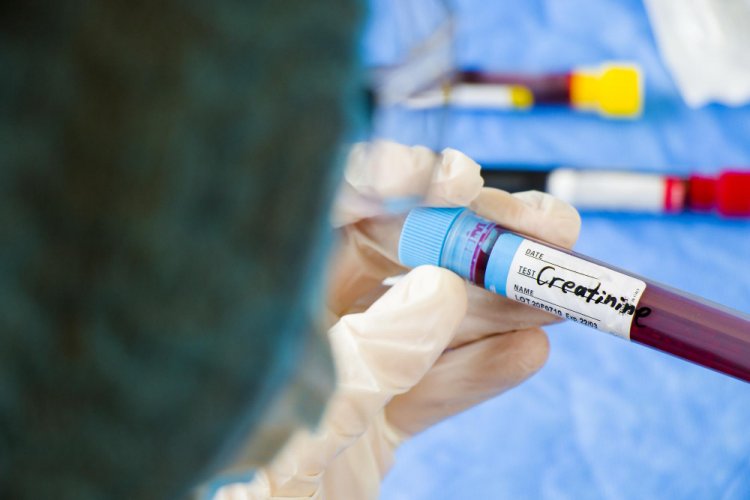Highs and Lows of Creatinine: A Comprehensive Guide to Abnormal Levels
Creatinine, a waste product generated from muscle metabolism, plays a crucial role in assessing kidney function. Fluctuations in creatinine levels can indicate various health conditions. In this comprehensive guide, we explore the intricacies of high and low creatinine levels, including their causes, symptoms, treatment options, and implications for overall health.

High Creatinine Levels (Creatinine Elevation)
Causes:
- Kidney Dysfunction: Impaired kidney function, often stemming from conditions like acute or chronic kidney disease, can lead to elevated creatinine levels.
- Dehydration: Reduced fluid intake or excessive fluid loss can cause the kidneys to concentrate urine, resulting in elevated creatinine levels.
- Muscle Damage: Conditions such as rhabdomyolysis or severe muscle injury can cause an increase in creatinine levels due to muscle breakdown.
Symptoms:
- Fatigue: Persistent fatigue or weakness, often disproportionate to physical exertion.
- Swelling: Edema, particularly noticeable in the extremities, due to fluid retention.
- Decreased Urination: Reduced frequency or volume of urine output.
- Shortness of Breath: Difficulty breathing, often associated with fluid accumulation in the lungs.
Treatment:
- Management of Underlying Conditions: Treating the primary cause, such as kidney disease or dehydration, is essential for managing elevated creatinine levels.
- Medications: Certain medications may help alleviate symptoms and improve kidney function.
- Dietary Modifications: Adjusting protein intake and avoiding high-sodium foods can reduce strain on the kidneys.
- Fluid Management: Maintaining adequate hydration while avoiding excessive fluid intake is crucial for kidney health.
Low Creatinine Levels (Creatinine Reduction)
Causes:
- Muscle Mass Loss: Conditions like muscular dystrophy, malnutrition, or aging can lead to reduced muscle mass and subsequently lower creatinine levels.
- Liver Disease: Liver dysfunction can impair creatinine production, resulting in decreased levels.
- Pregnancy: Some pregnant women may experience lower creatinine levels due to physiological changes and increased blood volume.
- Reduced Protein Intake: Inadequate dietary protein intake can diminish creatinine production, leading to lower levels.
Symptoms:
- Muscle Weakness: Difficulty in performing tasks requiring muscle strength or endurance.
- Fatigue: Persistent tiredness or lack of energy.
- Weight Loss: Unintentional weight loss, often accompanied by decreased appetite.
- Edema: Swelling, particularly in the legs and feet, due to fluid imbalance.
Treatment:
- Addressing Underlying Causes: Treating conditions contributing to low creatinine levels, such as liver disease or malnutrition, is paramount.
- Dietary Supplements: Under medical supervision, supplementation with creatine or protein can help support muscle health.
- Physical Therapy: Implementing tailored exercise regimens to promote muscle mass and strength.
- Regular Monitoring: Routine monitoring of creatinine levels is essential to track progress and adjust treatment as needed.
In Conclusion
Understanding the significance of creatinine levels is crucial for assessing kidney function and overall health. Whether experiencing high or low levels, seeking medical attention for proper evaluation and management is imperative. By addressing underlying conditions and implementing appropriate treatments, individuals can work towards maintaining optimal creatinine levels and promoting overall well-being.
#CreatinineLevels #KidneyFunction #HighCreatinine #LowCreatinine #CreatinineTest #KidneyHealth #CreatinineMeasurement #CreatinineAnalysis #KidneyDisease #Dehydration #MuscleDamage #LiverDisease #MuscleMass #Healthcare #Wellness #MedicalAdvice #TreatmentOptions #HealthTips #StayHealthy #HealthyLiving #MedicalConditions #MedicalKnowledge #FitnessGoals #HealthyDiet #Hydration #PhysicalTherapy #MuscleHealth #MedicalMonitoring #HealthAwareness
Disclaimer:
The information provided in this article is for educational purposes only and should not be considered medical advice. If you have any health concerns or are experiencing symptoms, it is important to consult with a healthcare professional, such as a doctor or clinic, for proper diagnosis and treatment. Always seek the advice of your doctor or other qualified health provider with any questions you may have regarding a medical condition. Do not disregard professional medical advice or delay in seeking it because of something you have read in this article.
What's Your Reaction?





















